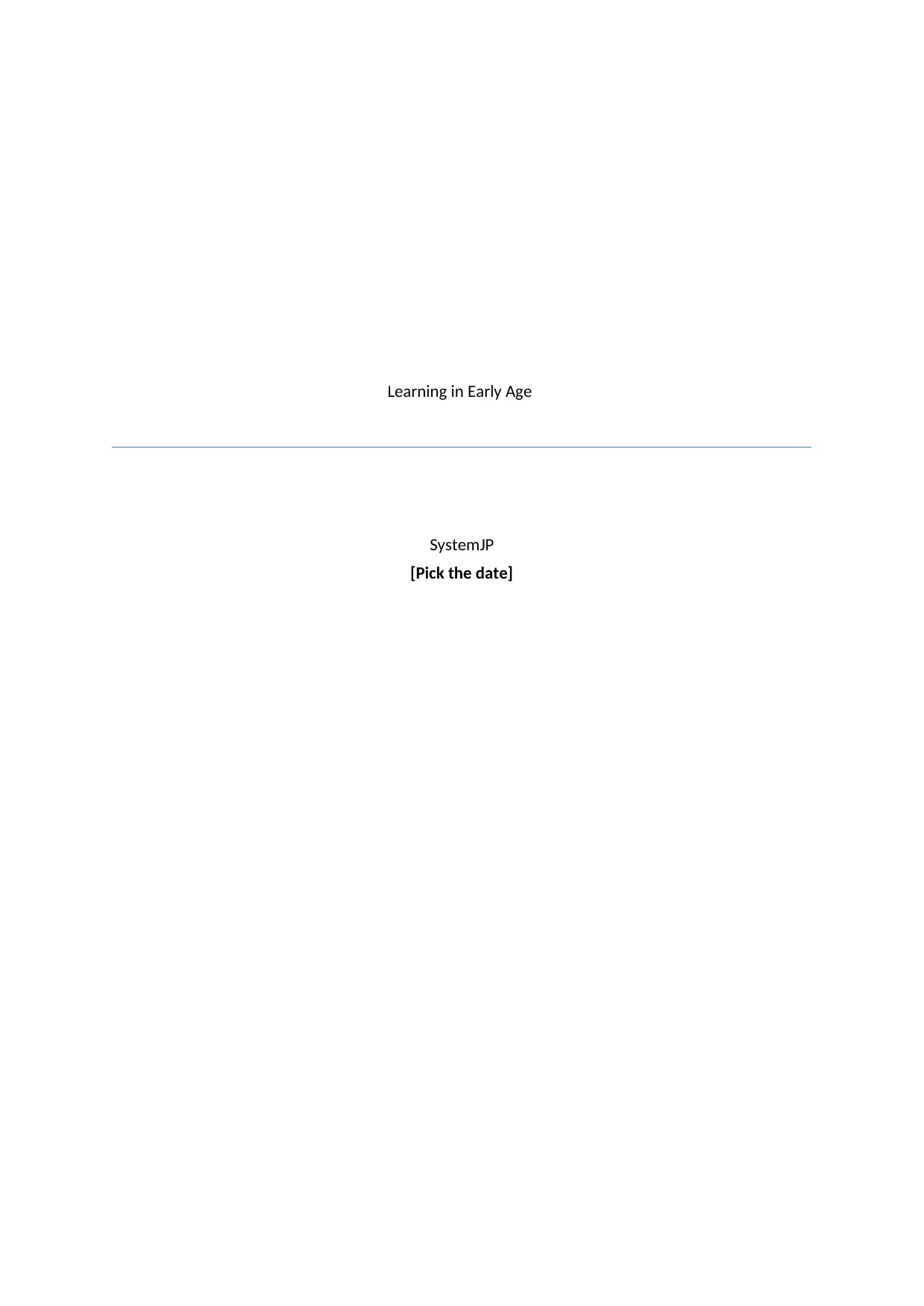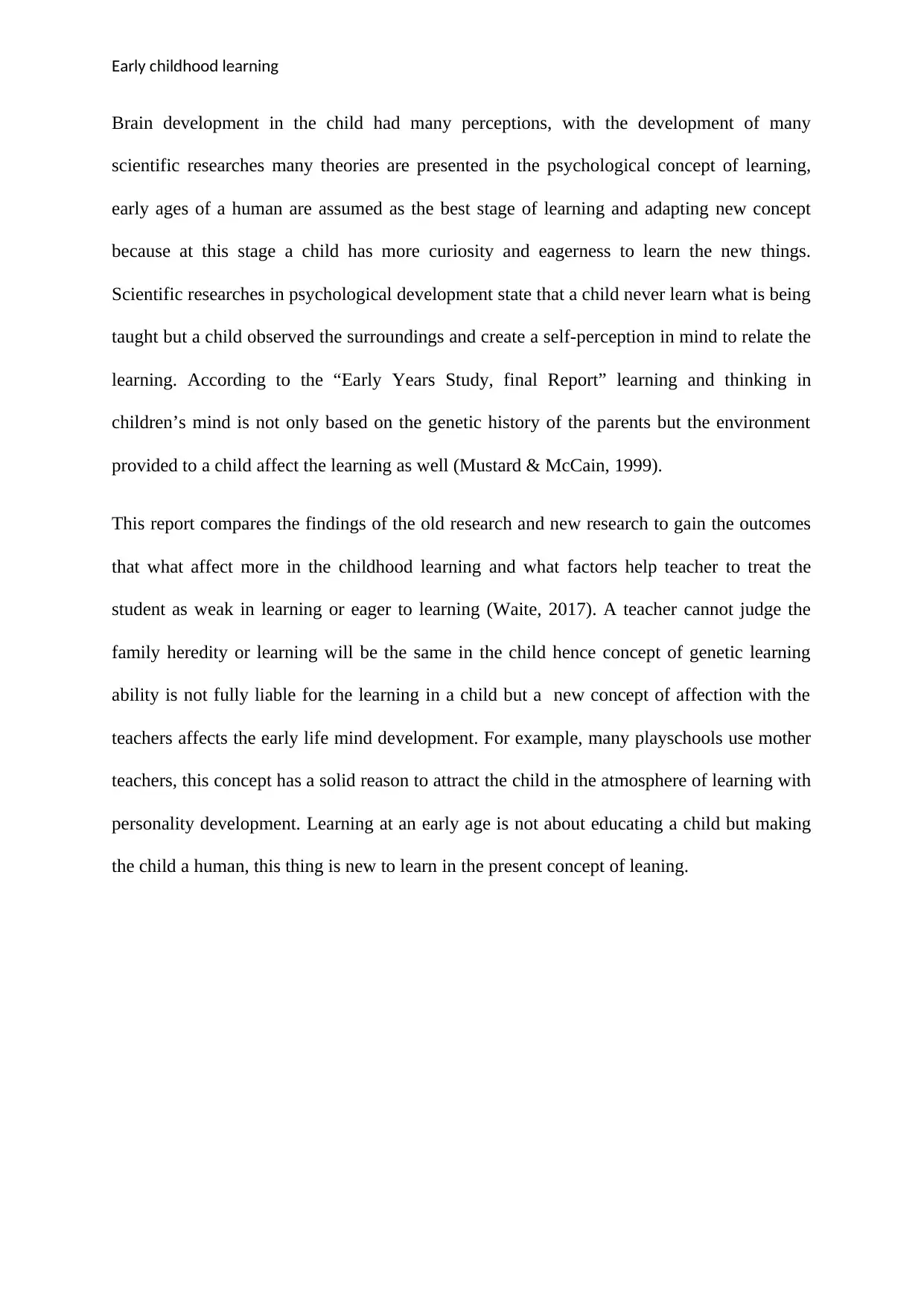Early Childhood Learning: Brain Development and Research
VerifiedAdded on 2022/08/12
|3
|379
|17
Report
AI Summary
This report delves into the crucial aspects of early childhood learning and brain development, referencing the Early Years Study. It highlights the significance of environmental factors and the role of educators in shaping a child's learning journey. The study explores the interplay between neuroscience, developmental psychology, and social sciences, emphasizing how a child's early experiences and the learning environment impact their cognitive abilities and overall development. The report also examines the impact of teachers and their interaction with the students, underscoring the importance of creating an engaging and supportive learning environment. Furthermore, it contrasts the traditional views of learning with the modern approaches, offering insights into how children learn and adapt based on their surroundings.
1 out of 3










![[object Object]](/_next/static/media/star-bottom.7253800d.svg)